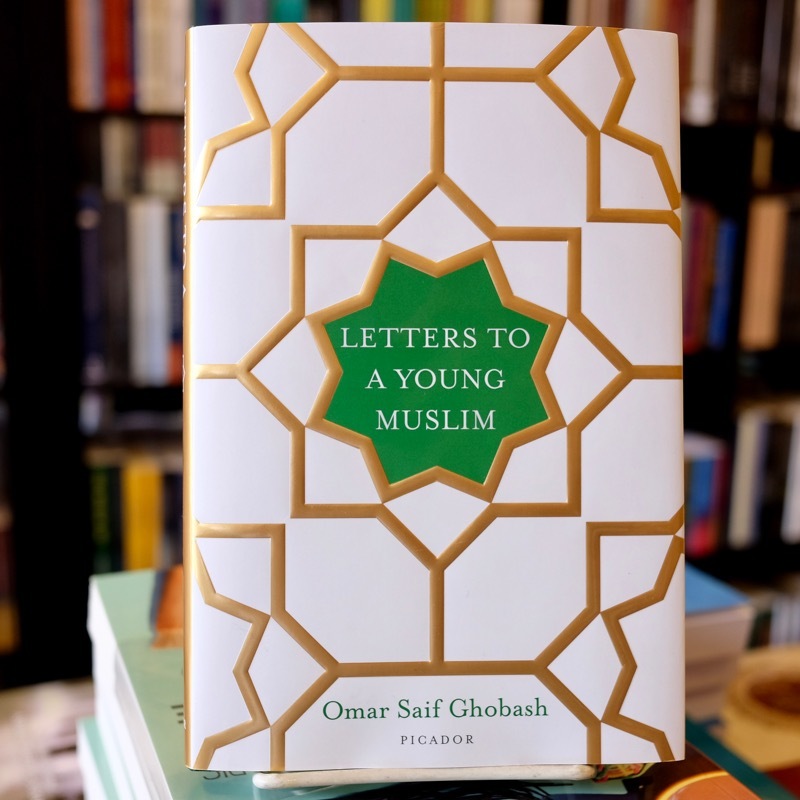- Posted on : February 17, 2017
- Posted by : Tom Fletcher
Last week, I chaired a session with Omar Ghobash on his new book, ‘Letters to a Young Muslim’. You can see his Daily Show interview with Trevor Noah here.
It is a terrific book, written with great heart, wisdom and courage. Omar pens a series of honest and thoughtful letters to his son Saif about the search for the voice of his father - an Emirati Minister assassinated when Omar was just six. In the process, he reflects on his own Islamic faith and its place in the modern world, strongly rejecting the idea that the two are incompatible.
Ghobash is well placed to ask these questions. The same age as the UAE, he represents many of the dilemmas facing the Middle East - tradition (he is a senior Ambassador himself) vs modernity; security vs freedom; optimism vs pessimism; facts vs imagination; individual rights vs community obligations; East vs West.
He also has a vantage point as both an insider and an outsider. From the former, I think he draws the ability to make calculated risks. From the latter, he draws the appetite to take them, to be the kind of outlier every society needs to progress. As he confronts the big issues about his own identity, he also asks radical, searching questions about the Arab world, and takes on deeply entrenched taboos and vested interests.
Most importantly, Ghobash makes the case for protection of the ‘grey areas’, where it is acceptable - ideally encouraged - to doubt, debate and compromise. In a chapter that should appeal to diplomats everywhere, he calls for more non-military role models in the Arab world - a message that applies more widely, as a wander past the statues of any Western capital or through the battles of any Western schoolbook reminds us. And he rails against the vanilla platitudes too often used unthinkingly about religion and politics (and diplomacy), in place of the tough and honest arguments that need to be had.
Ghobash has served in Moscow for almost a decade, and Tolstoy and Dostoevsky echo through the letters as much as JS Mill, Martin Luther and De Tocqueville. We need to take responsibility, and to avoid certainty: “I want you to be on the lookout for people who tell you with unerring conviction what you should do”. Omar implores Saif, and his readers, to think for themselves, resist dogma and fatalism, to trust in human agency.
Scientist Jacob Bronowski’s work on the nuclear bomb in the 1940s drove him from the most complex corners of the destructive power of mathematics and science towards a profound understanding of the same simple but vital challenge to mankind. He concludes ‘The Ascent of Man’, his powerful 1973 documentary of human development, standing knee deep in a muddy pond at Auschwitz, with the slime of the holocaust - in which many of his own family were killed - running through his fingers. He quotes Cromwell on the danger of certainty - “I beseech you … think it possible you might be mistaken”. He exhorts us in the powerful final shot “to reach out and touch people." Here’s a clip.
Ghobash makes this argument on the perils of blind certainty with similar eloquence and power. Like Bronowski, he knows the personal loss that can lead from it.
Of course, the challenge is ensuring that these questions are not just heard by the much maligned elites, the educated, by those who already recognize a strong set of shared human values between East and West, know their way around the helipads of Davos, or who watch 70s science documentaries. Somehow, it is those at the greatest risk of radicalization and extremism who need to be reached. If we think those groups are confined to the Arab world, we neglect the echoes of Western history and the election of Trump, and expose our own ignorance and intolerance.
So yes, let’s drain the swamp.
Of those who promote intolerance whether in tabloids or places of worship, and weaponise intolerance during political campaigns.
Of those those selling hatred of difference as the snake oil cure for globalization.
Of easy access to deadly weapons, and lack of justice for those who use them against civilians.
Of policy by media cycle, and those hawking quick fixes for a complex world.
Of the inequality of opportunity that provides a Petri dish in which extremism and anger festers.
This is a thoughtful and thought provoking book, of searing authenticity. Like all great books, it will become more important over time. I hope it becomes a guide and boost to the young Muslims who are on one of the frontlines of the argument between coexisters and wall builders. But it would be a waste if it was not also read by those who are neither young nor Muslim: these are really letters to global citizens. We need to stay curious about everything; and open hearted towards everyone. We must be ready to fight harder for the values we share than the intolerant - in all our societies - fight to destroy them.
Ghobash has placed his voice on the right side of that battle - “freedom is the highest partner in the construction of a moral world”. Not long ago we took that for granted. Now we will each have to decide what we are prepared to sacrifice to fight for it.
0 Comments

